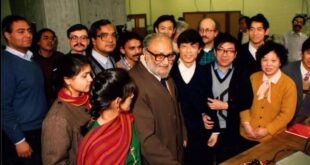Engineering is considered one of the most prestigious and sought-after professions in Pakistan.
However, the grim reality is that nearly 100,000 engineers remain unemployed despite spending 25 to 30 lakh PKR on their education from private institutions.
This raises serious concerns about the state of higher education, job market saturation, and the government’s role in providing employment opportunities.
The Growing Unemployment Crisis Among Engineers
Over the years, Pakistan has witnessed an alarming rise in the number of unemployed engineers. Several factors contribute to this crisis, including:
Oversaturation of Engineering Graduates:
The rapid increase in private engineering colleges has led to an oversupply of graduates, far exceeding the job market’s capacity.
Lack of Industry Growth:
Pakistan’s industrial sector is not expanding at a pace that can absorb the increasing number of engineers entering the workforce.
Outdated Curriculum:
Many engineering programs fail to align with the latest industry demands, leaving graduates with theoretical knowledge but limited practical skills.
Preference for Experience Over Fresh Graduates:
Many companies prefer hiring experienced professionals, making it difficult for fresh graduates to secure jobs.Limited Government Support: Insufficient government policies and lack of effective job placement programs further worsen the situation.
The Financial Burden on Students and Their Families
Pursuing an engineering degree from a private institution in Pakistan costs between 25 to 30 lakh PKR.
This is a significant financial burden on students and their families, especially when the return on investment is uncertain. Many students take loans or exhaust family savings, only to face unemployment after graduation.
The financial strain not only affects individuals but also has broader socio-economic implications.
Possible Solutions to Address Engineer Unemployment
To tackle this growing crisis, a multi-faceted approach is necessary:
Revamping the Education System:
Engineering programs must be updated to include practical training and align with current industry requirements.
Encouraging Entrepreneurship:
Universities and the government should support engineering graduates in starting their own businesses or tech startups.
Strengthening Industry-Academia Linkages:
Collaboration between educational institutions and industries can help create job-oriented curricula and training programs.Expanding Job Markets: The government should promote industrialization and infrastructure development to create more job opportunities.
Providing Career Counseling:
Students should be guided toward alternative career paths, including freelancing, international job markets, and skill-based certifications.
The issue of unemployed engineers in Pakistan is a serious challenge that requires immediate attention. Without effective reforms in education and job creation policies, the situation will continue to deteriorate.
While engineering remains a respected profession, students and parents must assess the job market before investing heavily in an engineering degree. Government intervention, along with industry collaboration, can help mitigate this crisis and ensure a brighter future for aspiring engineers.
 Top Trends Blogs
Top Trends Blogs




